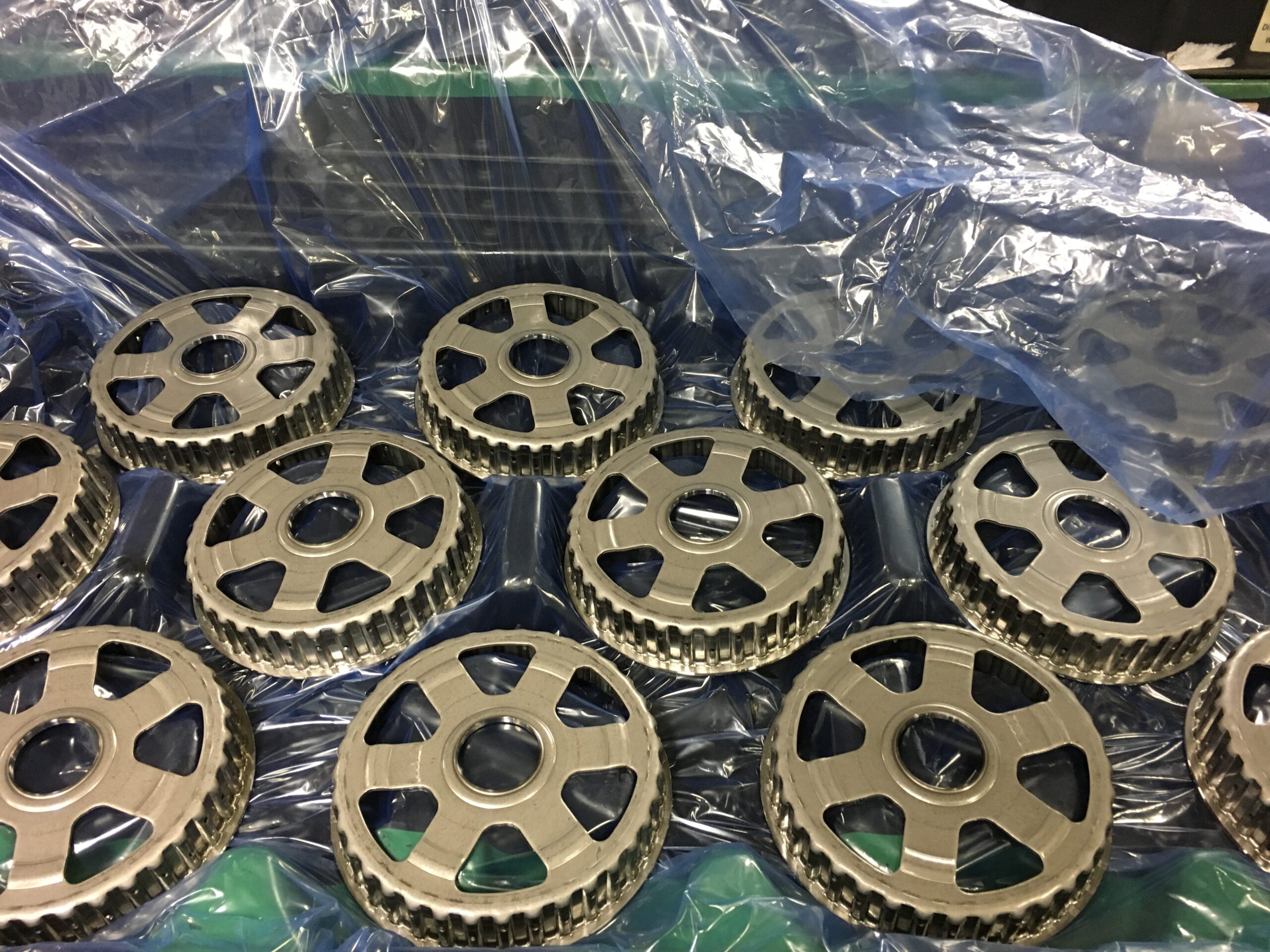
What Is Anti Corrosion VCI Packaging?
Anti corrosion VCI packaging refers to a specialized form of protective packaging designed to prevent rust and corrosion on metal products during storage or transportation. VCI, which stands for Vapor Corrosion Inhibitor, integrates advanced technology to safeguard metals by releasing a protective vapor that forms an invisible barrier on the surface of the metal. This method is increasingly replacing traditional rust-prevention techniques like oils or coatings due to its effectiveness and ease of use.
How Corrosion Impacts Industries
Corrosion can have a devastating effect on industries that rely heavily on metal products. From automotive parts to electronics, the cost of corrosion damage is staggering, amounting to billions annually in maintenance, repair, and replacement. It also leads to downtime, delays in production, and compromised safety. Anti corrosion VCI packaging provides a proactive solution by eliminating the root cause of rust and ensuring that goods arrive at their destination in pristine condition.
What Is Vapor Corrosion Inhibitor (VCI) Technology?
VCI technology is the foundation of anti corrosion VCI packaging. It involves the use of chemical compounds that vaporize and settle on metal surfaces, creating a molecular shield that blocks out moisture, oxygen, and other corrosive elements. Unlike traditional methods, VCI technology does not leave residues, is non-toxic, and provides long-lasting protection even in humid or saline environments. This makes it an ideal solution for global industries.
Key Advantages of Anti Corrosion VCI Packaging
Anti corrosion VCI packaging offers a range of benefits that make it indispensable for manufacturers, distributors, and exporters:
- Ease of Use: No need for messy coatings or oils. Simply wrap or seal the metal item in VCI packaging.
- Cost-Efficiency: Reduces the need for extensive labor or post-shipment cleaning.
- Comprehensive Protection: Guards against rust, tarnish, and oxidation.
- Eco-Friendly: Many VCI materials are recyclable and environmentally safe.
- Versatile Applications: Effective for both ferrous and non-ferrous metals.
Industries That Benefit from VCI Packaging
Anti corrosion VCI packaging is a game-changer for numerous sectors, including:
- Automotive: Protection for engine components, brake parts, and spare parts.
- Aerospace: Safe storage of precision parts and sensitive equipment.
- Electronics: Preservation of circuit boards and electronic connectors.
- Construction: Rust-free transport of tools and heavy machinery.
- Defense and Military: Safeguarding weapons, ammunition, and critical equipment.
Composition and Unique Properties of VCI Materials
VCI materials are typically composed of specialized films, papers, or foams infused with corrosion inhibitors. These inhibitors are carefully engineered to:
- Be safe for direct contact with metal.
- Release vapors that adhere to the surface uniformly.
- Offer prolonged protection without requiring reapplication.
- Resist environmental factors like high humidity, temperature changes, and exposure to pollutants.
Types of Anti Corrosion VCI Packaging
VCI packaging comes in various forms, each tailored to meet specific needs:
- VCI Films: Transparent and flexible, perfect for wrapping large items.
- VCI Bags: Ideal for small to medium-sized components.
- VCI Papers: Lightweight and cost-effective for interleaving or wrapping.
- VCI Foam: Provides cushioning and corrosion protection simultaneously.
- VCI Stretch Wraps: Combines secure binding with anti-corrosion features.
The Science Behind VCI: How It Prevents Corrosion
VCI packaging works by releasing a controlled amount of corrosion inhibitors into the surrounding atmosphere. These vapors condense on the surface of the metal, forming a micro-layer that prevents moisture, oxygen, and other corrosive agents from reacting with the surface. This layer dissipates once the packaging is removed, leaving the item clean and ready for use.
Steps to Maximize Efficiency of VCI Packaging
To get the most out of anti corrosion VCI packaging, follow these best practices:
- Ensure the metal surfaces are clean and dry before application.
- Seal the packaging properly to trap the vapor inhibitors inside.
- Avoid tearing or puncturing the VCI material during handling.
- Store the packaged items in a dry, controlled environment.
VCI Packaging vs. Traditional Methods
Traditional methods like oils, coatings, or desiccants are no match for the efficiency of VCI packaging. While oils and coatings require labor-intensive application and removal, desiccants only absorb moisture without actively preventing corrosion. VCI packaging, on the other hand, is a passive and highly effective solution that offers complete protection without additional maintenance.
